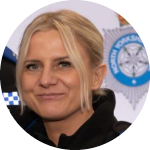|
||||
|
||||
|
|
||||
|
Please see below some detailed information if you have ever wondered which number to call when calling the police:
When to call 999: When there is an immediate danger to life: This includes situations where there is a threat of violence, someone is in immediate danger, or a crime is in progress. When a crime is in progress: If you witness a crime happening, you should call 999 immediately. When the suspect is nearby: If you see someone who has just committed a crime and they are nearby, you should call 999.
You should call 101 if you need to contact the police for a non-emergency situation. For example, if your car has been stolen, your property has been damaged, or you want to report a minor traffic accident. If it's an emergency, you should call 999 instead.
When to call 101: Report a crime that has already happened: This includes things like a stolen car, property damage, or a burglary where the offenders are no longer on the scene.
Provide information or intelligence about criminal activity: If you have information about drug dealing, suspicious behaviour, or other criminal activity in your area, you can report it to 101.
Report a missing person who is not in immediate danger: If you believe a person is missing but not in immediate danger, you can report it to 101.
Get updates on a previously reported crime: You can use 101 to get updates or follow up on a crime that you have already reported.
Seek advice on non-urgent matters: If you have questions about home security, local policing issues, or other non-urgent matters, you can contact 101 for advice.
Report a minor traffic collision: If a traffic collision does not involve injuries or block the road, you can report it to 101.
General enquiries: If you have general questions about policing or need to speak with the police about a non-urgent matter, you can call 101.
| ||||
Reply to this message | ||||
|
||||
|
|
|





